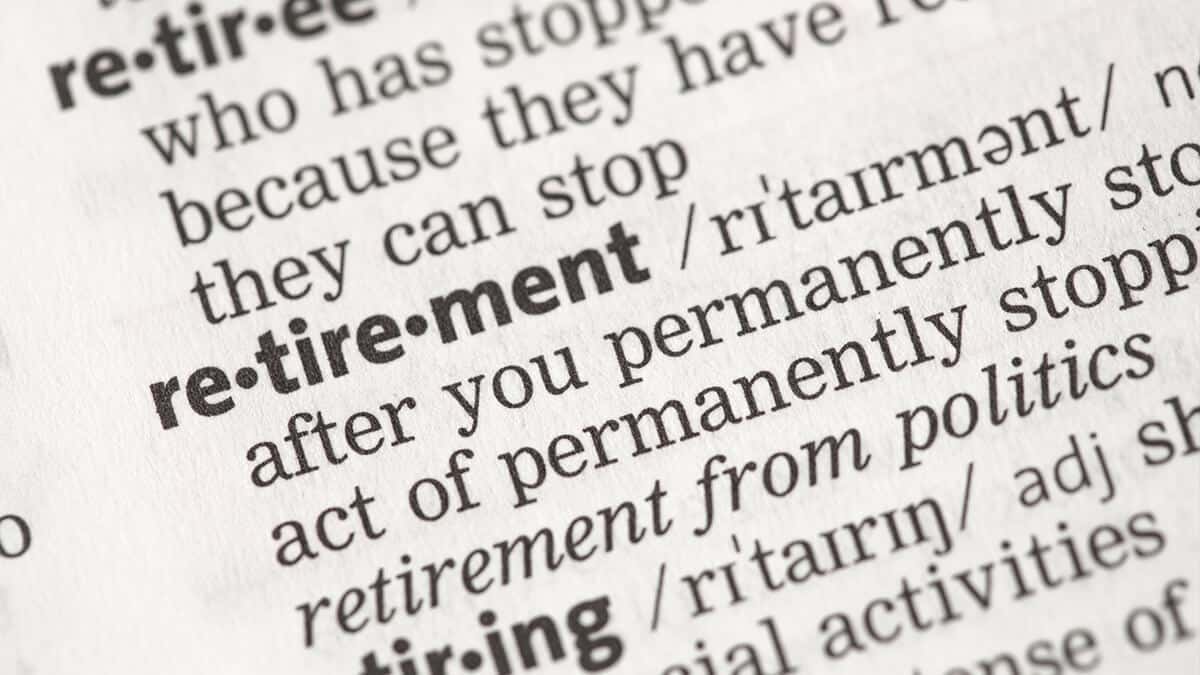On this page
- 1. Preservation age or over and retiring
- 2. Preservation age or over and starting a transition-to-retirement income stream (TTR or TRIS)
- 3. Age 60 or over and ceasing employment
- 4. Age 65 or over
- 5. Death
- 6. Compassionate grounds
- 7. Severe financial hardship
- 8. Terminal medical condition
- 9. Temporary incapacity
- 10. Permanent incapacity
- 11. The First Home Super Saver Scheme
- 12. Temporary resident departing Australia
- 13. Terminating gainful employment with a super balance less than $200
- The bottom line
Generally, superannuation is designed to provide retirement income and your savings can’t be accessed until you reach a certain age and retire.
It sounds simple enough, but in practice there are multiple ways you may be eligible to legally access your super under Australian legislation. These are known collectively as conditions of release.
The five most common conditions of release are:
- Being over preservation age and retiring
- Being over preservation age and starting a transition-to-retirement income stream (TRIS)
- Being 60 or over and ceasing an employment arrangement
- Being 65 or over
- Death
Early release of super
There are additional conditions of release that will allow you to access your super early if you meet strict eligibility criteria:
- On compassionate grounds
- If you’re suffering severe financial hardship
- If you’re diagnosed with a terminal medical condition
- If you’re temporarily incapacitated
- If you’re permanently incapacitated
- Through the First Home Super Saver Scheme
- If you’re a temporary resident departing Australia
- If you terminate gainful employment with less than $200 in your super account
We’ll look at each of these conditions of release in more detail in this article.
1. Preservation age or over and retiring
Your preservation age is between the ages of 55 and 60, depending on your date of birth.
If your date of birth is:
- Before 1 July 1960, your preservation age is 55
- Between 1 July 1960 and 30 June 1961, your preservation age is 56
- Between 1 July 1961 and 30 June 1962, your preservation age is 57
- Between 1 July 1962 and 30 June 1963, your preservation age is 58
- Between 1 July 1963 and 30 June 1964, your preservation age is 59
- On or after 1 July 1964, your preservation age is 60.
Once you’ve reached your preservation age and you retire from the workforce, you can access your super.
However, if you access your super prior to turning 60, you may have to pay tax on any payments you receive, regardless of the type of payment you get (i.e. lump sum or super pension). The amount of tax you’ll have to pay depends on whether your payment contains a taxable component, a tax-free component or a combination of both.
2. Preservation age or over and starting a transition-to-retirement income stream (TTR or TRIS)
If you reach your preservation age (see above), you can start a transition-to-retirement income stream (TRIS). This is a superannuation pension stream that you can draw while you’re still working. It can be a way to scale back your working hours and plan effectively for your retirement.
For example, you can work less hours or salary sacrifice into super to save tax, while using your TRIS to supplement your salary so you can maintain your lifestyle.
3. Age 60 or over and ceasing employment
You can access your super if you’re aged 60 and over and you stop working, even if you subsequently get another job with another employer. As mentioned earlier, super payments are generally tax free once you turn 60.
4. Age 65 or over
This is the simplest condition of release. Once you turn 65, you can access your super even if you haven’t retired.
5. Death
When you die, your dependants or nominated beneficiaries will be entitled to receive what’s left of your super.
If the recipients are your dependants, such as a spouse or child under the age of 18, your super balance can be paid either as a lump sum or an income stream.
If your beneficiary (or beneficiaries) are not your dependants, the payments must be made as lump sums.
Lump sum payments are generally tax free when paid to a dependent. Tax may be payable on income streams, depending on whether they have a taxable component, a tax-free component or a combination of both.
6. Compassionate grounds
You may be able to access your super early on compassionate grounds provided you meet strict eligibility conditions, and your super fund allows it. If you’re approved, the amount is paid and taxed as a lump sum.
Compassionate grounds can include the need to:
- Pay for your own medical treatment or transport (or for the treatment or transport of one of your dependants, such as a spouse or child)
- Make a mortgage or council rates payment to prevent you from losing your home
- Pay expenses to accommodate yourself or a dependant with a severe disability
- Pay for the palliative care of yourself or a dependent
- Pay for the death, funeral or burial expenses of a dependant.
In addition, the government is currently considering extending the compassionate grounds early release provisions to include dental treatment for life-threatening conditions, or those that cause chronic or acute pain.
If you’re approved to access some of your super early on compassionate grounds, the amount is paid and taxed as a lump sum.
7. Severe financial hardship
Accessing super early due to severe financial hardship is also possible, provided you meet strict eligibility conditions and your super fund allows it.
The Australian Taxation Office (ATO) will consider you to be in severe financial hardship if you meet the following three criteria:
- You have received government welfare payments from the Department of Human Services (DHS) for at least 26 consecutive weeks (except for ABSTUDY, Austudy or Youth Allowance student payments)
- You are still receiving those payments when you apply for the early release
- You are unable to pay your reasonable and immediate family living expenses.
If you’re approved to access some of your super early due to severe financial hardship, the amount is paid and taxed as a lump sum.
8. Terminal medical condition
If you have a terminal medical condition, two medical practitioners must certify that you have an illness or injury that will result in your death within 24 months of the date of the certificate. At least one of these medical practitioners must be a specialist in the area of your terminal illness or injury.
You can choose to access all or some of your super, subject to the rules of your fund. There are no legal restrictions on the amount you can access, but withdrawals must be taken as tax-free lump sums.
9. Temporary incapacity
You can access super benefits early due to temporary incapacity provided the benefits come from specific sources.
You’re temporarily incapacitated (according to Australian super legislation) if either physical or mental ill-health issues cause you to temporarily:
- Be unable to work at all
- Work less hours than you normally would.
If you’re temporarily incapacitated and you need to supplement your income via your super, you may be able to access two potential benefits:
- Income protection insurance benefits
- Any voluntary employer-funded benefits that you may have in your super fund.
This includes any super contributions made by your employer that are more than the 10% compulsory superannuation guarantee contributions that they are required to make on your behalf.
Both these potential benefits must be paid as a taxable income stream. They cannot be converted to a lump sum.
10. Permanent incapacity
You can access your super benefits early due to permanent incapacity provided you meet these eligibility conditions.
Two medical practitioners must certify that you have physical or mental health issues that are likely to stop you from working ever again in the job you’re qualified to do.
If you’re permanently incapacitated, you can access:
- Any total and permanent disability (TPD) insurance benefits that you may have in your super fund (either as a lump sum or income stream)
- Any other super benefits you have accumulated. There are no restrictions on the amount of your own benefits that you can access, and you can access them as a lump sum or as a regular income stream of payments.
If the payments you receive via your super fund are TPD insurance benefits, these payments are tax free.
However, if you’re accessing permanent incapacity benefits from your super fund that aren’t TPD insurance payments, these payments are taxable.
11. The First Home Super Saver Scheme
The First Home Super Saver Scheme (FHSSS) is a recently introduced government scheme aimed at encouraging people to save money for a deposit on their first home in the lightly taxed super environment. Super contributions and fund earnings are taxed at the concessional rate of 15%.
Under the conditions of the scheme, eligible Australians can voluntarily contribute up to $15,000 in any one year and up to a maximum of $30,000 across all years to their super fund. They can later withdraw these funds to buy their first home, provided they plan to live in it (that is, it’s not an investment property).
12. Temporary resident departing Australia
The Departing Australia Superannuation Payment (DASP) is available to departed temporary residents who worked and earned super in Australia. It is not available for permanent Australian residents, nor for Australian and New Zealand citizens.
In addition to having accumulated super while working as a temporary resident in Australia:
- Your temporary visa to work in Australia must have expired
- You must have left Australia.
Temporary residents working in Australia must have a work visa to be employed legally. A range of work visas are available, including skilled worker visas and working holiday-maker visas. The type of work visa you have is important, as it affects how much tax you’ll pay when you receive your DASP.
The Australian tax payable on a DASP depends on three factors:
- Whether you have a working holidaymaker visa or another type of visa that enables you to work in Australia
- Whether your DASP contains taxable and non-taxable (tax-free) components
- Whether the taxable component of your DASP contains taxed and untaxed elements.
The table below outlines the different Australian tax rates that apply.
| DASP component | Tax rate for working holiday makers | Tax rate for non-working holiday makers |
|---|---|---|
| Non-taxable component | Nil | Nil |
| Taxable component (taxed element) | 65% | 35% |
| Taxable component (untaxed element) | 65% | 45% |
The tax payable in your home country will depend on its specific tax legislation for foreign earnings and this specific type of payment.
If you’re a temporary resident departing Australia who has paid or is liable to pay Division 293 tax, you can apply to the Australian Taxation Office (ATO) to be released from both your current and future tax obligations. You must have received a DASP payment prior to making this application. You may also be entitled to a refund of some of the Division 293 tax you have paid. The ATO will make this assessment based on your specific situation.
To apply for DASP you should contact your super fund. In some cases your super fund may have transferred your super balance to the ATO if it’s been six months or more since you left Australia, or if your visa has expired. The ATO will class your super balance as unclaimed super money that you’re entitled to claim as a DASP. You can check online if the ATO is holding any of your super via your myGov account.
Whether you’re applying for your DASP via your super fund or the ATO, you’ll need documentary evidence that your temporary Australian visa has expired and that you’re no longer living in the country as part of the application process.
You can authorise someone else to claim your DASP for you, such as a registered tax agent or another suitable person of your own choosing. Your authorisation must be in writing and enable the person you nominate to act on your behalf in relation to your DASP claim. Your DASP will generally be made within 28 days of your application if you provide all the required supporting documentation.
13. Terminating gainful employment with a super balance less than $200
You can access your super benefits early under Australian law if you have a fund balance of less than $200 and your employment has been terminated – whether you lost your job or you resigned.
This is allowed because fees may erode the balance of your account over time if you don’t make any further contributions. If you do have multiple super accounts with balances of less than $200, you’re entitled to withdraw the balance of each one. However, it’s important to also consider consolidating these amounts into a single super fund so you can grow your super nest egg. Even small amounts can make a big difference if you add them when you are young due to the magic of compound interest.
To apply for release you should contact your super fund. In some cases the super fund may have transferred your super money to the ATO, for example if there has been no activity on your super account for 12 months. You can check online if the ATO is holding any of your super via your myGov account.
Whether you’re applying to your super fund or to the ATO for the early release of balances less than $200, you’ll generally need to provide the following supporting documentation:
- A letter from your employer confirming that your employment has been terminated (or an Employment Separation Certificate)
- Your payment summary from the relevant employer (including details of any termination payment that you may have received when your employment ceased).
No tax is payable on any payments you receive due to your super fund balance being less than $200.
The bottom line
Generally, to legally access your super in Australia you must satisfy a condition of release. Different conditions of release have different payment conditions and tax implications.








Leave a comment
You must be a SuperGuide member and logged in to add a comment or question.